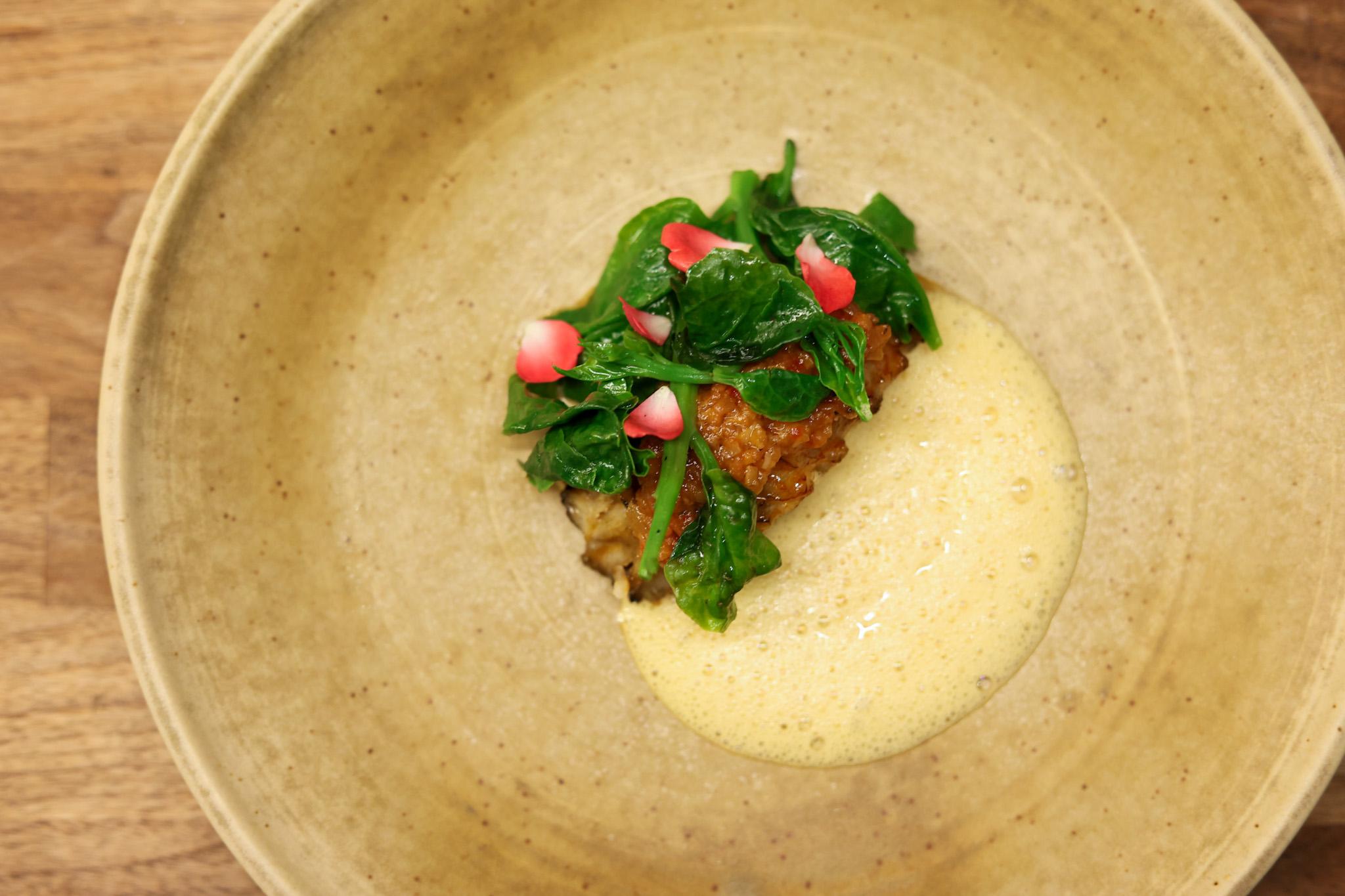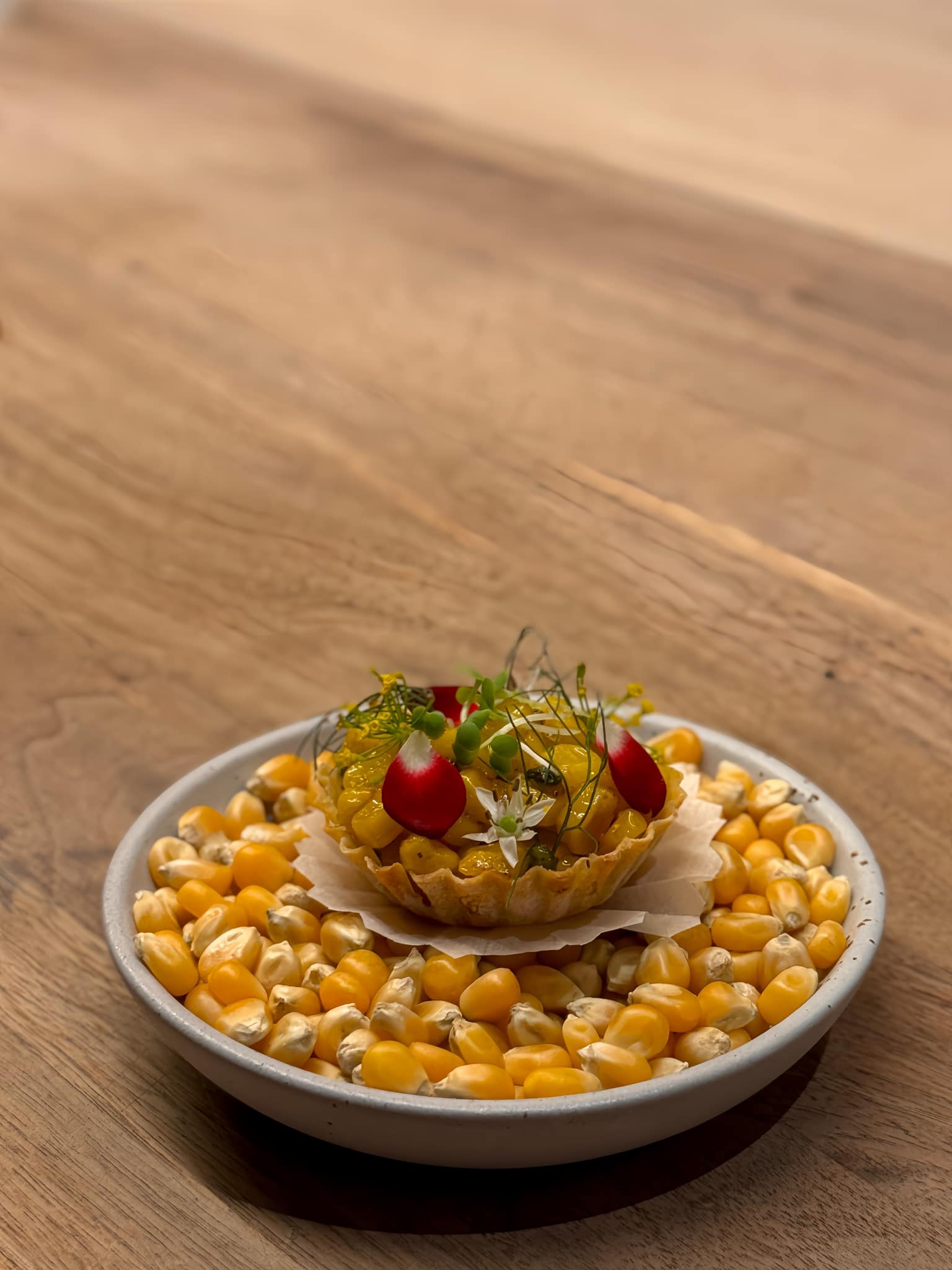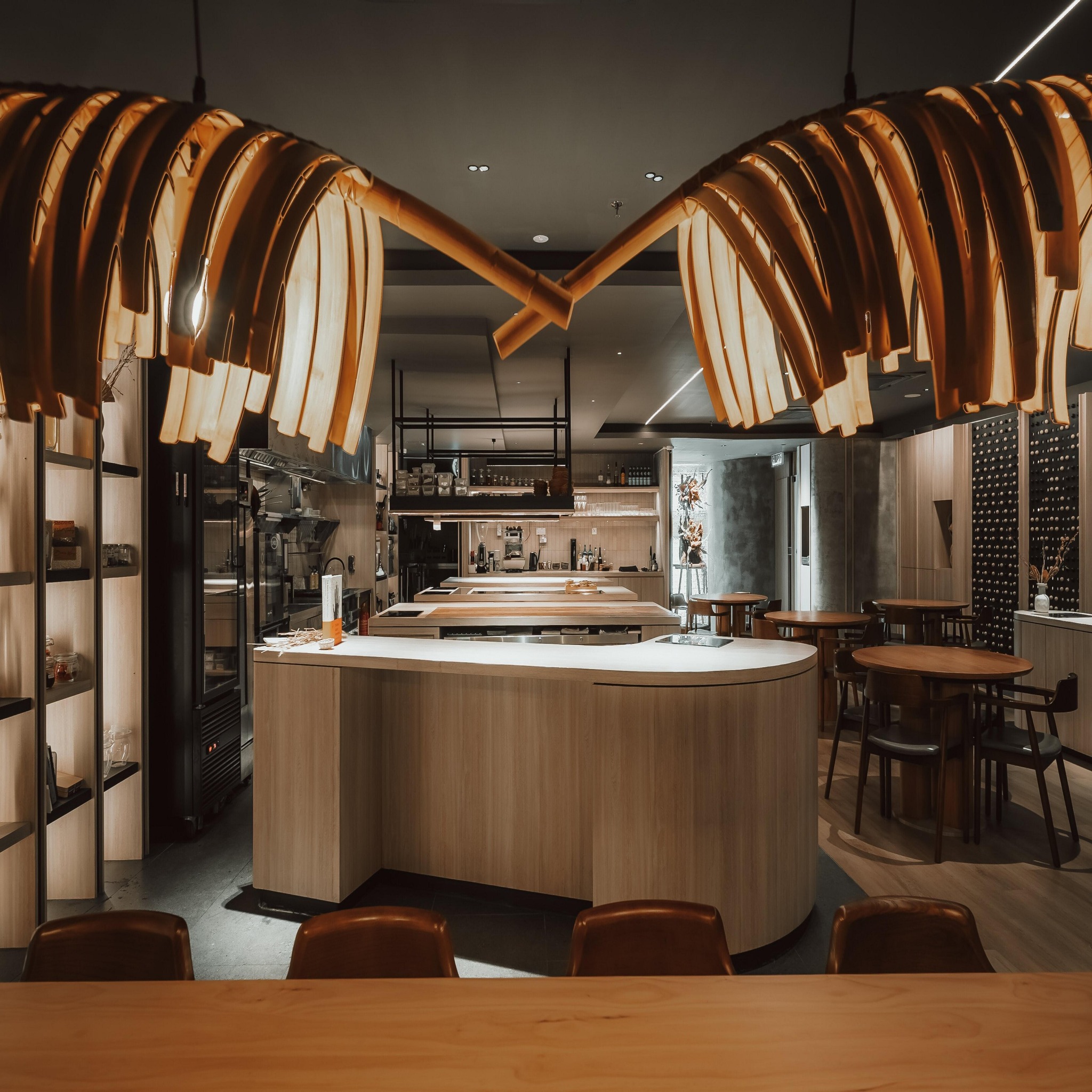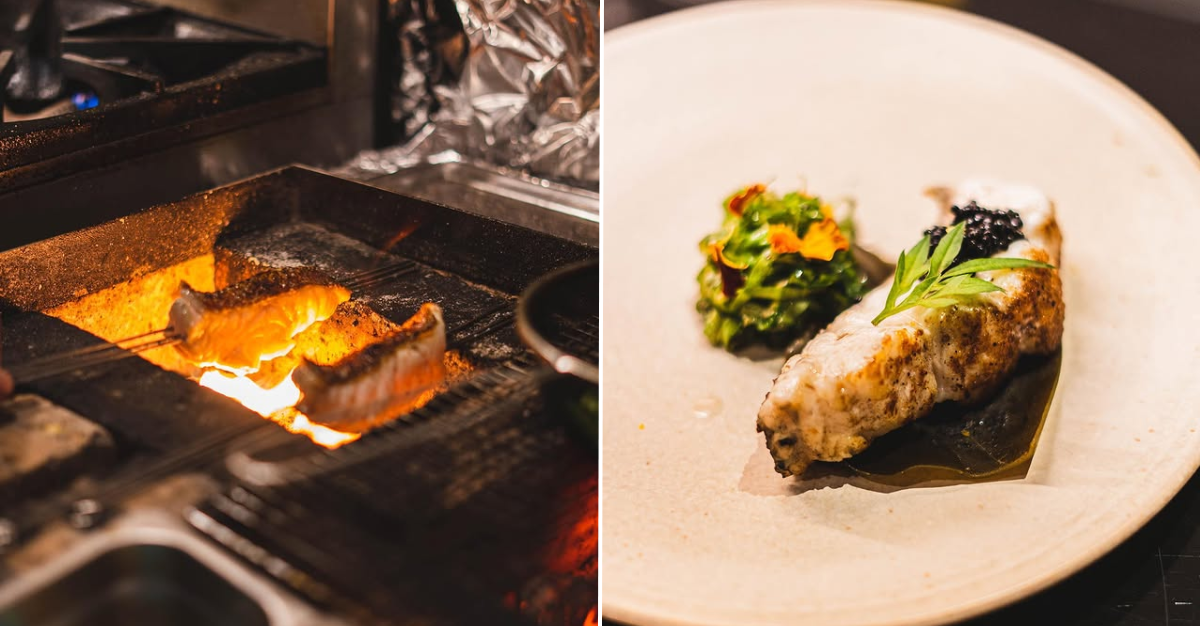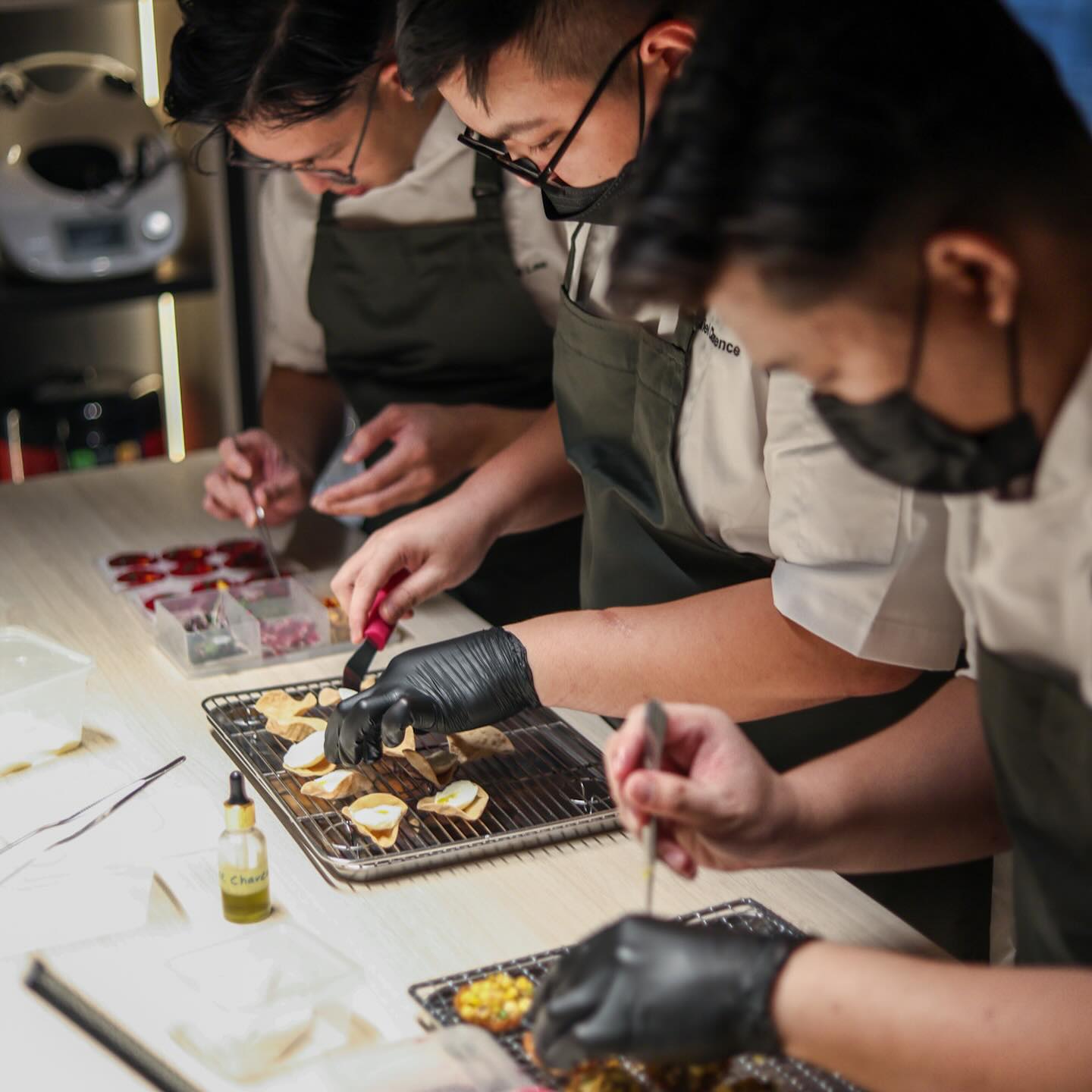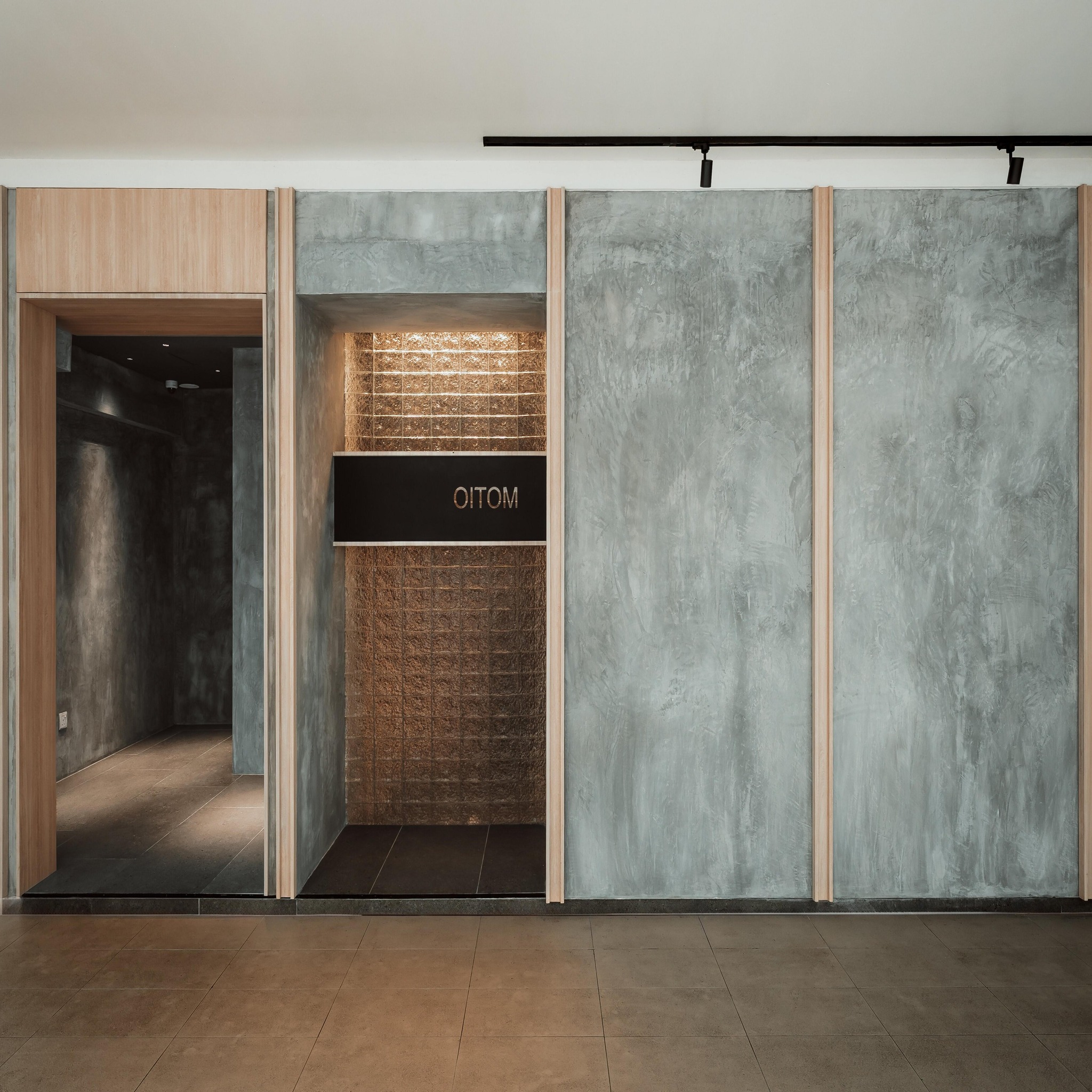Sabahan Restaurant Celebrates Local Flavours & Heritage With Rungus-Inspired Open Kitchen
Traditional dishes reimagined with modern techniques and artistry.
OITOM, the brainchild of Sabahan chef, Raphael Lee, is all about building a communal dining experience through the power of food
Imagine the sizzle of fresh seafood hitting the grill, the rhythmic chopping of local herbs, and the tantalising aroma of spices filling the air.
Located in Kota Kinabalu, this fine dining establishment boasts a unique open kitchen concept, inspired by the traditional Rungus longhouse, creating a warm and inviting atmosphere for diners to be part of the culinary experience.
Growing up in Sandakan, Raphael had a pretty unconventional relationship with food: it was one of sustenance rather than indulgence.
His love for food began after discovering cooking shows on the Asian Food Channel, which took him to kitchens in Singapore and Melbourne, where he honed his skills in contemporary and Mediterranean cuisine.
However, it was his time at the world-renowned Nordic restaurant, Noma, that truly shaped his vision. Noma's emphasis on local, seasonal ingredients resonated deeply with Raphael, inspiring him to return to Sabah and champion his homeland's culinary heritage.
"Noma's philosophy inspired us to bring the essence of Borneo to our guests in a way that's fresh and contemporary, yet deeply rooted in local heritage," Raphael explains.
He believes that using local ingredients is key to celebrating the authenticity and diversity of Sabah's natural bounty
The restaurant is dedicated to sourcing fresh, high-quality ingredients from local growers, farmers, and artisans. "It's about preserving the essence of where we come from while innovating with respect for our culinary heritage," he says.
The restaurant's menu is a testament to this commitment, offering dishes that range from deep-sea delicacies to mountain-harvested treats. Sabah's unique flavours shines through innovative signature creations like the Ikejime grouper and lobster, served with a fiery tuhau sambal, a spicy condiment made from wild ginger.
There's also the Tartlet of Kudat Sinalau Corn with Yuzu Truffle, which is a modern take on a local dish known as Jagung Bakar (grilled corn).
While sourcing local ingredients can be challenging, especially when dealing with seasonal availability and sustainable practices, Raphael sees these hurdles as opportunities for creativity and innovation.
"These challenges push us to innovate and adapt to what nature provides, which keeps the menu fresh and exciting."
Even the name "OITOM" itself is an indication of the restaurant's passion for local culture and flavours
Inspired by the Dusun word for "black," the name is a nod to the rich and vibrant heritage of Borneo's indigenous communities.
"It symbolises depth, mystery, and authenticity," Raphael explains.
From the rattan-crafted light fixtures to its open kitchen design, inspired by a traditional Rungus longhouse, the restaurant's layout and décor are a celebration of Sabah's unique heritage.
Raphael shared that the open kitchen helps to create a unique dialogue between the chefs and the guests.
Guests can freely ask the chefs questions and gain a deeper understanding of the ingredients and techniques used.
"Seeing the dishes come together step-by-step adds a layer of authenticity and engagement to the experience, and it allows our chefs to share their artistry directly with diners," he says.
This open dialogue has even led to the creation of new dishes, inspired by interactions with diners.
"A guest shared their love for a traditional Sabahan ingredient, tuhau (wild ginger), and how it reminded them of home. This sparked a conversation about incorporating it into a modern dish," he recalls. "Inspired by their story, we experimented and created a tuhau-infused butter to pair with freshly baked bread, and it became a guest favourite."
Raphael shares that the local community has responded positively to OITOM.
"Many locals are proud to see their heritage celebrated and shared with guests from all over."
Despite OITOM's fine-dining atmosphere and focus on innovative cuisine, many of the staff in Raphael's team began their careers with little experience
But, Raphael believes in fostering a strong team environment where everyone can contribute and grow. "Teamwork is the backbone of OITOM," he emphasises. "Every team member, from the kitchen to the front of house, plays a crucial role in creating a harmonious dining experience."
Raphael prioritises a supportive, hands-on learning environment.
"Mentorship is about instilling respect for ingredients and dedication to craft," he explains. "We teach fundamental skills while encouraging creativity and personal growth."
For aspiring chefs eager to make their mark in the culinary world, Raphael offers words of wisdom gleaned from his own journey: Stay true to your roots and find a unique story to tell through your food
"Be prepared for hard work and learn every aspect of the business, from sourcing to service. Building strong relationships with your team and suppliers is crucial," he advises.
He stresses the importance of mastering the fundamentals before taking the leap into restaurant ownership. "Learn the craft and trade before jumping into the biggest decision in life — opening a restaurant," he says.
Above all, he reminds aspiring chefs of the power of connection through food. "Remember that every meal you serve is an opportunity to connect with someone through your craft."
Looking ahead, Raphael recognises both the challenges and opportunities facing Sabah's F&B industry. "One challenge is ensuring that the industry grows sustainably, respecting the environment and local culture," he notes.
However, he remains optimistic about the future of Sabah's culinary scene.
"We have access to unique local ingredients and rich cultural heritage that can inspire innovative dining experiences. As more people become interested in indigenous flavours, the industry has the chance to make a meaningful mark."
Find OITOM on Facebook and Instagram. Their menu can be found here.
